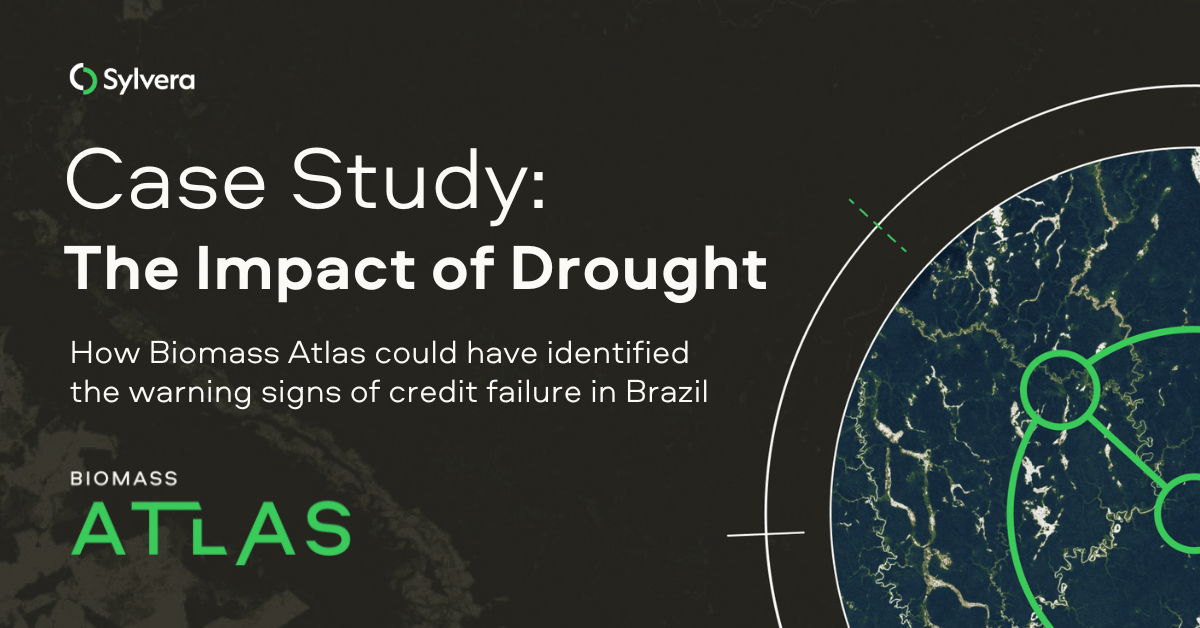“Over the years we’ve invested significantly in our field data team - focusing on producing trusted ratings. While this ensures the accuracy of our Ratings, it doesn’t allow the scale across the thousands of projects that buyers are considering.”
For more information on carbon credit procurement trends, read our "Key Takeaways for 2025" article. We share five, data-backed tips to improve your procurement strategy.

One more thing: Connect to Supply customers also get access to the rest of Sylvera's tools. That means you can easily see project ratings and evaluate an individual project's strengths, procure quality carbon credits, and even monitor project activity (particularly if you’ve invested at the pre-issuance stage.)
Book a free demo of Sylvera to see our platform's procurement and reporting features in action.
On Thursday the UK Climate Change Committee published their Voluntary Carbon Markets and Offsetting report, the result of a public call for evidence (read Sylvera’s response here). At 102 pages, it’s not light reading, but it’s an important indication of future policy interventions in the UK.
Disappointingly, but not surprisingly, many headlines have focused on the negatives. Reuters led with “Carbon credit use could curb company climate action, warns UK advisers”, while Sky News went with “Carbon offsets allow some companies to hide poor performance on cutting own emissions, government advisers say”.
It’s true that there is a real risk that credits can be, and indeed have been, used to avoid meaningful internal emissions reductions. But greenwashing is something that companies are no longer getting away with. More and more media outlets are scrutinizing companies’ “green” claims. Just in the last few weeks we’ve seen a number of high profile businesses called out for their questionable green claims, including British Gas, Drax, and European airlines such as British Airways and EasyJet. And of course there was John Oliver’s widely-shared segment taking offsets to task. Meanwhile IC-VCM and VCMI are making challenging but meaningful strides in tackling both supply and demand-side integrity in the voluntary carbon markets (VCMs). SBTi, the leading science-based net zero targets initiative, has recently begun promoting the role of offsetting, or BVCM (beyond value chain mitigation) in net zero strategies.
Constructive recommendations didn’t make headlines
More frustratingly, these headlines don’t even reflect the key messages from the report, which actually makes many constructive and insightful recommendations. In particular, the report focuses on how the government can contribute to improving both supply- and demand-side integrity, while recognizing the importance of prioritizing decarbonization. The report’s 3 main recommendations are:
- Encourage businesses to support high integrity nature-based and biological solutions and engineered removals, while focusing on achieving direct business emissions reduction.
- Continue efforts to protect and raise the integrity of carbon credit projects, in the UK and globally, and to ensure voluntary carbon markets are resulting in lower overall global emissions and positive wider impacts.
- Support the modest but useful role voluntary carbon markets can play in the UK Net Zero pathway, in tandem with other measures.
Decarbonization + quality offsets = legitimate action
Far from discrediting VCMs, this position aligns with the emerging consensus among VCM participants. Not all credits are good quality, but those that are have an essential role to play in the net zero transition when used as part of a science-informed decarbonization strategy.
There is much that can meaningfully be done to improve the integrity of carbon markets. This report makes some interesting suggestions, particularly around the role of government and regulatory intervention. The report calls out the potential for better oversight of VCMs to tackle many of the ongoing criticisms of VCMs by improving transparency through mandatory disclosure of credit reliance, establishing legal definitions of climate claims, and enforcing standards for credit quality. Sylvera supports many of these recommendations, and recognizes the important role of coordinated international regulation in building market confidence and scaling impact. We also welcome the UK once again taking a leading role in climate action and voluntary carbon markets.
We cannot afford to let perfect be the enemy of good, and discard an essential tool in our arsenal against climate change. Instead, we need to keep scrutinizing VCMs and offsetting, being honest about when they fall short, and supporting coordinated action to rapidly address these problems. Adopting the recommendations of this report could be a positive step towards this.















